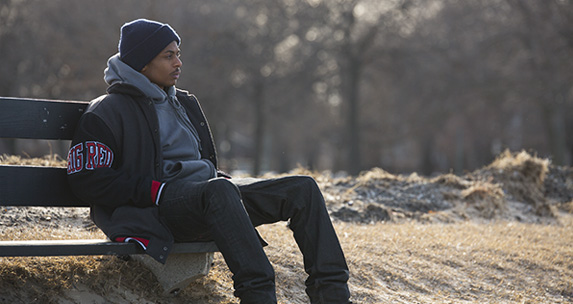Youth homelessness is on the rise in the United States, and the numbers aren’t pretty. One in 30 kids (nearly 2.5 million children) of K-12 school age are now homeless in the US, according to a study by the National Center on Family Homelessness. As per UNICEF, the USA has a GDP (Gross Domestic Product) of $16.8 trillion, yet has the developed world’s second highest rate of child poverty.
Depressing numbers to be sure. But rather than feel completely hopeless, there are people out there making a difference, and teens who are fighting through the obstacles to build better lives for themselves. Three such stories are at the center of the new film The Homestretch.
Learn More
First, here are a few additional stories and more background, that serve as good companions to The Homestretch.
-
- CNN’s John Sutter put together a super interactive feature about homeless kids in wealthy Silicon Valley (where the median income is $30K higher than the national average). It includes a family of four with both parents working yet are still homeless, as well as glimpses of other young people living in cramped spaces and barely surviving while living down the street from some of the world’s wealthiest tech companies. “How is it that we’re in Silicon Valley and we’re working, and we’re in this situation,” a mom named Stacey wonders aloud. Her son is in junior high school while they live in a homeless shelter, and he articulates the challenges of not worrying about getting made fun of for not having a place to live.
-
- As shown in The Homestretch, one absolutely critical tool in a homeless teen’s life is a cell phone. A survey posted in the Journal of Urban Health found that about 62% of homeless teens own a cell. While it may seem like a luxury item compared with food or shelter, Eric Rice, PhD, Assistant Professor at the University of Southern California’s School of Social Work and creator of the survey, noted: “Having a phone can be an opportunity for making strides toward a stable life. In my study I found that many of the youth who owned cell phones were using them to try to improve their situation. About 40 percent of the youth said they were using their phone to try to get a job. About a quarter of the youth also told me that they were using their phones to keep up with a social worker helping them to get off the streets.”
-
- With that in mind, there are many ways one can donate a working cell phone, such as how Doorways for Women and Families partnered with Cellular Recycler. We recommend contacting your local shelter or youth services program to see if they have a similar program or recommendation. And see the end of this post for other ways you can help homeless youth.
- Award-winning photographer Alex Fradkin teamed with the Reciprocity Foundation for a series of striking portraits of homeless teens called “See Me: Up Close with New York’s Homeless Youth.”
New Solutions
- Scott Carrier, writing in Mother Jones, found what he deems a “Shockingly Simple, Surprisingly Cost-Effective Way to End Homelessness.” While this story is not as much about youth without homes as it is the chronically homeless, the lessons being learned by what the state of Utah is doing might be applied in a broader way.
In 1992, a psychologist at New York University named Sam Tsemberis decided to test a new model. His idea was to just give the chronically homeless a place to live, on a permanent basis, without making them pass any tests or attend any programs or fill out any forms.
“Okay,” Tsemberis recalls thinking, “they’re schizophrenic, alcoholic, traumatized, brain damaged. What if we don’t make them pass any tests or fill out any forms? They aren’t any good at that stuff. Inability to pass tests and fill out forms was a large part of how they ended up homeless in the first place. Why not just give them a place to live and offer them free counseling and therapy, health care, and let them decide if they want to participate? Why not treat chronically homeless people as human beings and members of our community who have a basic right to housing and health care?”
A key quote from the piece about this groundbreaking idea: “The old model was well intentioned but misinformed. You actually need housing to achieve sobriety and stability, not the other way around.”
-
- An officer who once lived on the streets himself as a teen now helps Clearwater, Fla. homeless teens, in a touching story of someone overcoming a depressing living situation as a young person to create a new life—and then giving back to others.
-
- Here’s an ad campaign in the UK aimed at inspiring people to take in homeless young people and to “see another side of homelessness.”
-
- Here’s a place in Denver doing something innovative, and as an added bonus it involves getting people good coffee, so everyone wins:
Most bosses avoid meddling in their employees’ personal lives, but Madison Chandler and Mark Smesrud are different.
They co-founded Purple Door Coffee, a Denver-based nonprofit that employs young people “who have been homeless and want to leave homelessness behind.” The shop provides a 52-week curriculum, teaching employees practical skills—like budgeting and banking—as well as the know-how to improve their physical, emotional and mental health.
